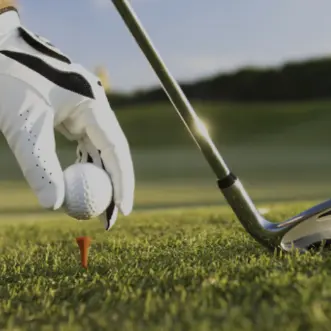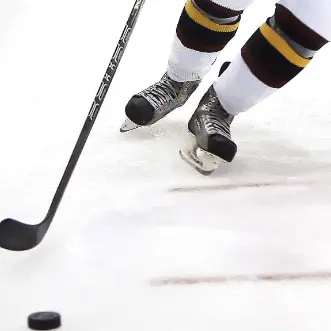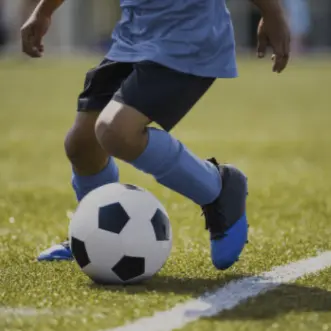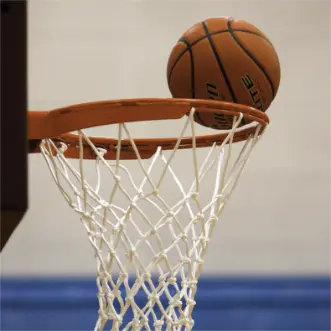Excellence In Athlete NeuroVision Centre
Be Visually Fit In Your Sport With NeuroVision Care!
Dr. Gall has a science-based solution for athletes to achieve their best performance in Sport.
Book Your Athlete NeuroVision Screening Today!
Best Care to unlock your full eye-brain connection and sports performance!
Visual distortion patterns can limit your sports performance!
How often do you experience inconsistent play, plateaued performance, dizziness, anxiety, trouble remembering plays or tracking players, balls or pucks?
Do you want to lead your best self in your sport and life?
Are your NeuroVision skills are good as your physical skills?
Dr. Gall offers solutions for Professional NeuroVision Care for your visually-fit athletic goals.
Next Steps For Your Athlete NeuroVision Screening
1. BOOK
Most athletes do not realize that you need over 12 different neuro-vision skills to succeed in learning, sports and in life.
2. REVIEW
What is your visually-fit goal for your sport? The eye-brain connection is the fuel for attention – driving performance in sport.
3. INVEST
Dr. Gall offers only the best in Professional NeuroVision Care providing solutions for your aspirational visually-fit goals.
Athlete NeuroVision Centre
Boosting Your Vision and Sport Performance
Compete with your body, Win with your eyes!
Go from good to great at your sport with Dr. Gall’s science-based NeuroVision approach.
NeuroVision and Athletes
This is a doctor-directed approach for NeuroVision growth to boost your performance in your sport.
It is like a gym membership for your NeuroVision skills. The Athlete NeuroVision Centre is a dynamic space to unlock your full eye-brain connection and sports performance.
It is not therapy; it is an approach to boost your NeuroVision reserves, reduce any visual distortions, and enhance your performance in your sport.
Dr. Gall and his Athlete NeuroVision Centre helps you
- Be visually-fit for your sport
- Build confidence, resilience and adaptable-responses
- Enhance decision-making and clarity
- Perform consistently
What Is Your Visually-Fit Sport Outcome?
Dr. Gall helps you reach your visually-fit “10” through targeted 6-week sprints.
NeuroVision represents a specific area of optometry, which appraises your eye-brain-body connection. These eye-brain connections allow you to interpret the sports world into an accurate visual GPS map and then the brain to anticipate the optimal neuro-codes to drive your body’s sports performance.
Dr. Gall has a science-based solution for growth-driven athletes to achieve their best performance is sport.
Dr. Gall’s aim is to meet your aspirational visually-fit sport goals; and increase your NeuroVision reserve to excel in your sport.
Book your NeuroVision Sports Screening with Dr. Gall today:
What Sports Symptoms Do You Have?
- Struggling to track the ball or other players
- Over or under estimating distances
- Poor sports performance even with strong athletic skills
- Improvement is not noticed even with practice
- Trouble remembering plays
- Headache
- Dizziness
- Anxiety
- Diminished interest in sports
- Difficulty catching or throwing
- Inability to see the ball clearly
Concussion & Sports
ATHLETE NEUROVISION CENTRE AND CONCUSSION
Boosting Vision and Sports Performance
A CONCUSSION IS A FORM OF MILD TRAUMATIC BRAIN INJURY.
Concussions are a result from a direct blow to the head, or indirectly from something such as whiplash and twist of the head/neck.
The impact causes the brain to hit against the inside of the skull causing brain bruising or bruising of the brain stem with the aggressive twist. It is estimated that nearly ½ a million (~500,000) concussions occur yearly in the Canada.
CONCUSSION SYMPTOMS CAN PERSIST
10% of concussions result in symptoms that can last months, or more. When these symptoms are unrelenting, the patient is diagnosed with Persistent Post-Concussion Syndrome (PPCS). Although most concussion resolve within one month.
GENERAL SYMPTOMS
CONCUSSIONS HAVE THESE TYPICAL SYMPTOMS. *Vision related
- Confusion
- Headache*
- Disorientation
- Vomiting and/or Nausea
- Unsteadiness*
- Light sensitivity*
- Blurred Vision*
- Double vision*
- Loss of place when reading*
- Post-traumatic amnesia
- Dizziness*
THE MISSING LINK
UP TO 1/2 OF SYMPTOMS ARE VISUAL, MEANING VISION IS OFTEN THE MISSING LINK.
Recent research suggests that over 50% of patients with concussion or post-concussion syndrome have visual problems that may cause headaches, eye-headaches, double vision, eye strain, blurred vision or dizziness.
Since seeing is our dominant-sense and about 80% of information channels through our eyes, Persistent Post-Concussion Syndrome (PPCS) may cause adults to have reduced performance in life: work, school or sports.
For some athletes with PPCS, the effortless process of making sense of what is seen is altered. One or more visual skills may be fragile and lose their auto-pilot mode and result in interference with performance in life.
OVERCOMING REDUCED VISUAL-PERFORMANCE SECONDARY TO CONCUSSION
Optometrists have a great understanding of the visual system. They have the opportunity to retrain visual skills through a program of vision therapy or neuro-optometric rehabilitation. This helps eliminate the visual symptoms most commonly associated with Persistent Post-Concussion Syndrome (PPSC) and boost vision and sports performance.
GETTING TREATMENT
YOU WILL WANT AN OPTOMETRIST DEDICATED TO NEURO-OPTOMETRIC REHABILITATION (VISION THERAPY)
Neuro-Optometric Rehabilitation represents a specific area of optometry, which addresses deficits in eye-teaming, focusing, visual tracking, visual processing problems, and related visual problems. These visual problems are common with athletes who have concussion and other forms of acquired brain injury. Treatment may involve spectacle lens prescriptions, prisms, filters, special tints and vision therapy which can provide relief.
Vision therapy entails a variety of non-surgical therapeutic procedures designed to vitalize visual function. Vision therapy involves a series of treatments during which carefully planned activities are carried out by the athlete under professional supervision. The targeted treatments are determined by the nature and severity of the diagnosed condition. Vision therapy is done to boost visual and sports performance – not to simply strengthen eye muscles.





